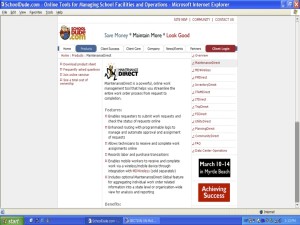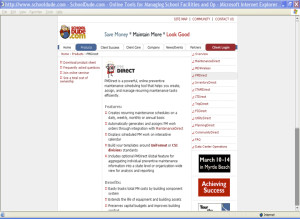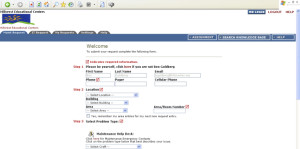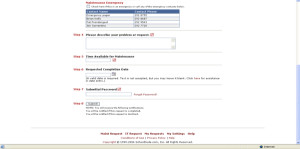RESIGNATION
Employment with HEC is at-will, meaning that the employment relationship can be terminated by the employee or HEC at any time, for any reason, with or without notice.
Separation of employment can come as a result of the employee’s resignation in good standing. In order to resign in good standing all exempt employees, including all supervisory staff, are expected to give a minimum of 4 weeks written notice. All non-exempt employees are expected to give 2 weeks written notice.
For Teachers: pre-scheduled vacation time cannot be counted towards the expected 4-week resignation notice. Also, if the anticipated last day of employment falls during a pre-scheduled teacher vacation, the resignation will be accepted effective the last day physically worked prior to the pre-scheduled teacher vacation. Pre-scheduled vacation time will not be paid out in this circumstance.
At the time of separation, the employee is entitled to receive pay for accrued vacation leave. Employees are required to turn in all company property prior to their last day of work, including their HEC identification card. The value of any unreturned company property will be deducted from your final paycheck.
The employee cannot use vacation leave (even if pre-approved) after submitting their resignation, though some flexibility of schedule or vacation hours may be allowed, upon receipt of written request, at the discretion of the Program Director. Approval will not be given to pursue vacation plans.
In the final pay period, the staff will be paid for hours worked. The employee will be requested to complete an exit interview prior to their last day of employment.
Should the employee, who resigns in good standing, wish to be considered for on-call employment, the employee must go through the resignation process first, then should notify their Program Director and Human Resources of their desire to remain on-call. Offers to remain on-call will be made based on the need for on-call staff at the time of resignation. If an employee leaves and returns within 1 year, an adjusted service date will be calculated and benefits will be based on this date.
REFERENCES FOR FORMER EMPLOYEES
All reference requests must be directed to the Human Resources Department.
REHIRE OF FORMER EMPLOYEES
Applicants who have previously worked for HEC, and who left the Agency in good standing, are encouraged to apply for open positions. All applicants, no matter how short the time between resignation and rehire, must complete the standard hiring process.
ADJUSTED SERVICE DATE FOR REHIRED EMPLOYEES
People who are rehired will be credited for prior full- or part-time service if 1) prior full- or part- time service was one year or longer and 2) the break in service was less than one year. An adjusted service date will be calculated giving credit for the prior full- or part-time service. Former employees will be placed on the payscale and benefit package that is in effect at the time of rehire.
REDUCTION OF THE WORK FORCE
There are a number of scenarios, such as a sharp decline in census or prolonged economic uncertainty, which may result in the need for a reduction-in-force (RIF). As an organization that prides itself on integrity and respect, HEC will make efforts to avoid such action. However, in certain times it may be a required step to protect the stability and long-term viability of the agency.
In the event that a RIF is necessary, HEC will review several alternatives, including but not limited to those set forth below, prior to the elimination of positions.
Methodology:
When larger groups of staff are affected, HEC will review all the staff in a given position and/or shift. In determining which employee(s) will be affected, overall agency seniority will be considered (as opposed to time spent in position or at a given campus). While the majority of positions are considered “campus positions”, some departments such as Support Services, are
considered agency-wide positions and may be treated differently.
Reassignment:
When possible, HEC will make every effort to relocate a displaced employee into a similar position
within the campus or agency. If an appropriate position exists, the details of that placement will be determined on a case-by-case basis. If there are multiple displaced employees, and limited like positions, reassignment will be offered to the employee with the most overall agency seniority. The remaining individuals will be placed on a “call back” list and given first refusal if a position should
become available. The duration of the “call back” period will be determined at that time.
If we are unable to reassign displaced employees to a similar position, they will be encouraged to
apply for a direct care position if available. If selected, the employee will be placed on the pay scale based upon their experience and education level. Any non-direct care employee accepting a direct care position will be required to successfully complete a fit-for-duty exam, crisis
prevention/intervention training, First Aid/CPR and all other required compliance training topics prior to the beginning of their shift.
Layoff:
If a reassignment is not possible, or an appropriate position is not available, the affected employee will be laid off.
Notice:
In the event that a layoff is necessary, HEC will provide the affected employee with a minimum of
2 weeks notice.
Last day worked:
On the last day of their employment, the affected employee will receive pay for the time worked up to and including their last day plus pay for any earned but not yet used vacation time.
Severance:
In addition to the providing notice, HEC may also provide the affected employee with severance pay, depending upon specific circumstances. Employees with less than one year of service will generally receive 1 week of severance pay. Employees with greater than one year of service will generally receive 2 weeks of severance pay. Severance pay will be paid no later than the pay date of the payroll cycle in which the last day worked took place.
Continuation of Health and Dental Insurance:
All benefits (employee and employer paid) would end on their last day worked, subject to
continuation under the provisions of COBRA, if applicable.
PLACEMENT / SUPERVISION OF SIGNIFICANT OTHERS AND RELATIVES
HEC desires to attract qualified applicants and encourages employees to refer friends and relatives to the Human Resources Department for possible employment. However, except under unusual circumstances as determined by the Human Resources Department, “relatives”, as defined below, shall not be permanently assigned to the same department, or permitted to remain in the same department, nor be permitted to hold any position that would place them in a direct supervisory relationship. HEC, at its discretion and according to its needs, shall determine which of the two employees shall be transferred or reassigned and the position to which they shall be transferred or reassigned. Temporary employment under the same circumstances may be permitted at the discretion of the Human Resources Department.
“Relatives” includes spouse, children (including legally adopted children), step-children, grandchildren, sons-in law, daughters-in-law, brothers-in-law, sisters-in-law, siblings, parents, step- parents, parents-in-law, uncles, aunts, nephews or nieces. “Relatives” also includes persons cohabiting, though not legally married.
Staff who are dating subordinates on the same campus and/or shift, will be reassigned to other shifts or teams, at the discretion of the Program Director. Staff who are dating other staff on the same campus will be disciplined should there be inappropriate behavior or boundary concerns while on duty. Program Directors maintain the right to transfer staff should interpersonal relationships interfere with treatment or work performance.
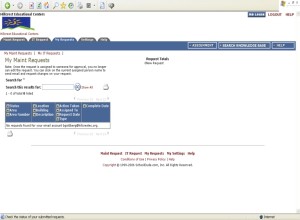 Requests for maintenance and repairs are managed through a web based request system at www.schooldude.com. Any HEC employee with access to the Internet can make a maintenance request via the Schooldude system.
Requests for maintenance and repairs are managed through a web based request system at www.schooldude.com. Any HEC employee with access to the Internet can make a maintenance request via the Schooldude system. 
